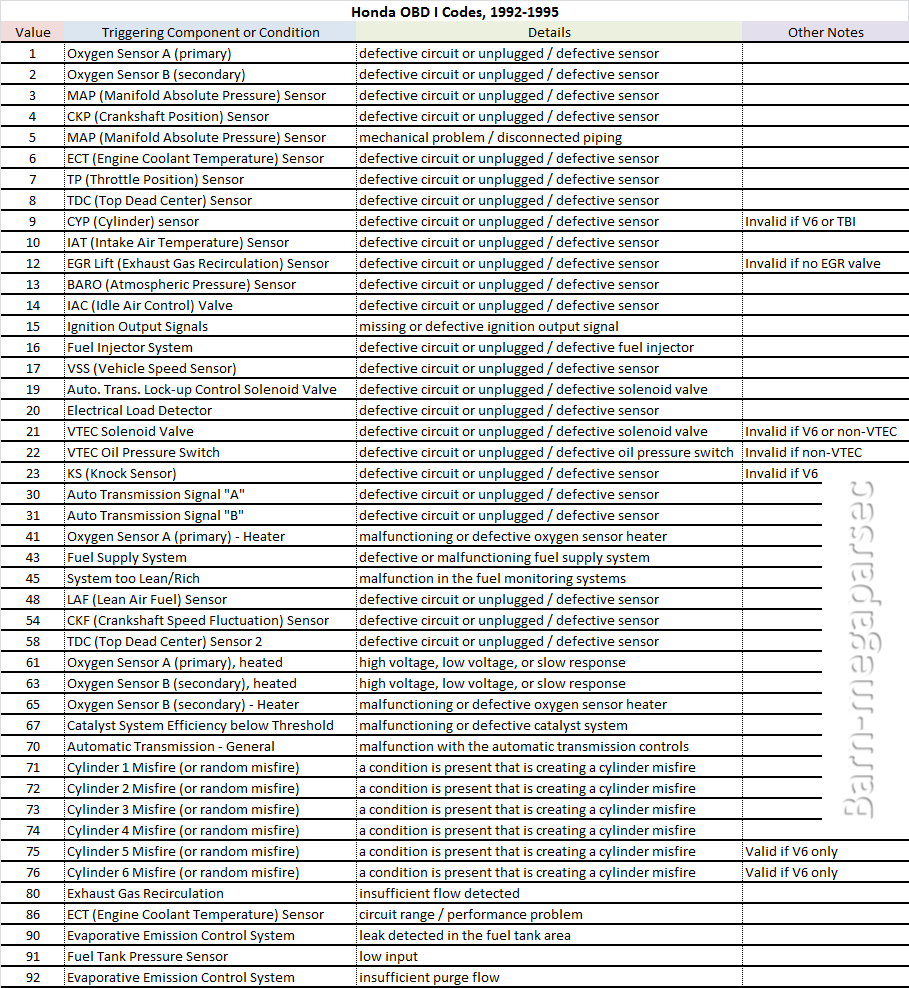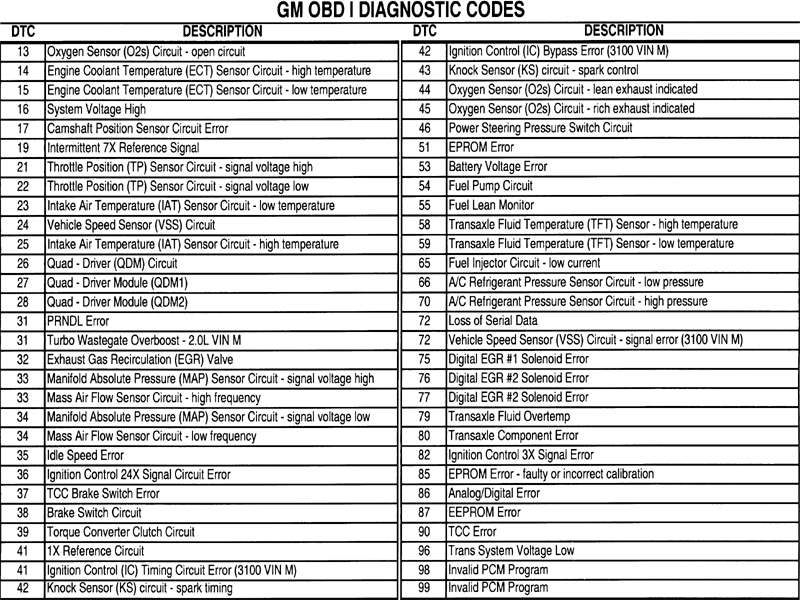Imagine this: your car's check engine light suddenly illuminates, casting an ominous glow on your dashboard. A wave of uncertainty washes over you. What's wrong? Is it serious? This is where the power of engine error codes, formally known as Diagnostic Trouble Codes (DTCs), comes into play. These codes are the key to understanding your vehicle's internal dialogue and resolving potential issues.
Engine trouble codes, or DTCs, are alphanumeric codes that represent specific malfunctions detected by your car's onboard diagnostic system (OBD). Think of them as your car's way of communicating its ailments. These codes offer valuable insights into the health and performance of your vehicle's engine and related systems. Without these codes, diagnosing car problems would be a significantly more complex and time-consuming process.
The history of DTCs traces back to the late 1970s and early 1980s when the automotive industry began incorporating electronic control units (ECUs) into vehicles. Initially, these codes were manufacturer-specific, creating a confusing landscape for mechanics. However, with the introduction of OBD-II in 1996, standardization arrived, making diagnostic processes much more streamlined and accessible.
The importance of engine fault code lists cannot be overstated. They provide a starting point for troubleshooting, allowing mechanics and even DIY enthusiasts to quickly pinpoint the source of a problem. Without DTCs, diagnosing car issues would often involve a laborious process of elimination, potentially leading to unnecessary repairs and expenses. Access to a comprehensive error code listing empowers car owners and technicians to interpret these codes accurately.
One of the main issues associated with engine trouble code interpretation is the potential for misdiagnosis. While DTCs provide valuable clues, they don't always pinpoint the exact problem. They may indicate a symptom rather than the root cause. Therefore, it's crucial to use these codes as a starting point for further investigation and not rely solely on them for a definitive diagnosis.
For instance, a DTC related to a misfire could be caused by a faulty spark plug, a failing ignition coil, or even a fuel system problem. Proper diagnosis requires using the DTC as a guide and conducting further tests to identify the underlying cause.
One of the benefits of having access to engine trouble codes is faster repairs. Mechanics can quickly narrow down the potential causes of a problem, saving valuable time and reducing labor costs.
Another benefit is cost savings. By accurately diagnosing the problem with the help of DTCs, unnecessary repairs can be avoided, saving car owners money.
A third benefit is improved vehicle performance. Addressing issues identified by DTCs can lead to improved fuel efficiency, smoother running, and overall better performance.
Advantages and Disadvantages of Relying on DTCs
| Advantages | Disadvantages |
|---|---|
| Faster Repairs | Potential for Misdiagnosis |
| Cost Savings | Requires Further Investigation |
| Improved Vehicle Performance | May Indicate Symptom, Not Root Cause |
Best Practice: Always consult a reliable DTC list specific to your vehicle's make and model. Generic lists may not provide accurate information.
Best Practice: Use a diagnostic scanner to retrieve DTCs. Many affordable options are available.
Best Practice: Research the DTC thoroughly before attempting any repairs.
Best Practice: Consider consulting a qualified mechanic for complex issues.
Best Practice: Document all DTCs and repairs for future reference.
Frequently Asked Questions:
Q: What does a flashing check engine light mean? A: A flashing check engine light usually indicates a serious problem that requires immediate attention.
Q: Can I clear DTCs myself? A: Yes, you can typically clear DTCs using a diagnostic scanner.
In conclusion, engine error codes, or Diagnostic Trouble Codes (DTCs), have revolutionized automotive diagnostics. They provide a vital communication link between your vehicle and the diagnostic tools used to understand its health. While interpreting these codes requires careful consideration and further investigation, they offer invaluable insights into potential problems, leading to faster repairs, cost savings, and improved vehicle performance. By understanding the history, importance, and practical applications of engine error codes, you can empower yourself to take control of your vehicle's maintenance and ensure a smoother, more reliable driving experience. Embrace the information provided by these codes, and remember that a little knowledge can go a long way in keeping your car on the road. Don't hesitate to consult reputable resources and seek professional advice when needed, as accurate diagnosis and timely repairs are essential for maintaining a safe and well-performing vehicle.
Super animal royale review furry fun or fowl play
Unleash your inner weirdo finding the perfect cool animated discord pfp funny
Corvallis oregon events happening now
Moto le voyant dinjection de carburant sallume après 5 minutes de - Khao Tick On
Po52b Trouble Code Bmw - Khao Tick On
Chevrolet Trouble Codes List - Khao Tick On
Honda Civic Check Engine Light Codes - Khao Tick On
Mitsubishi Fuso Fighter 6M60 Engine Fault Codes - Khao Tick On
Volvo D13 Engine Fault Codes List - Khao Tick On
Ford Engine Codes List - Khao Tick On
Audi A4 Engine Management Fault Dashboard Warning Light - Khao Tick On
engine error codes list - Khao Tick On
Chevy Silverado Trouble Codes - Khao Tick On
Chevy Diagnostic Trouble Codes - Khao Tick On
Honda Engine Light Codes - Khao Tick On
Chevy Check Engine Light Codes - Khao Tick On
Error Codes For Check Engine Light - Khao Tick On
Caterpillar Truck Engine Error codes CID FMI MID - Khao Tick On













